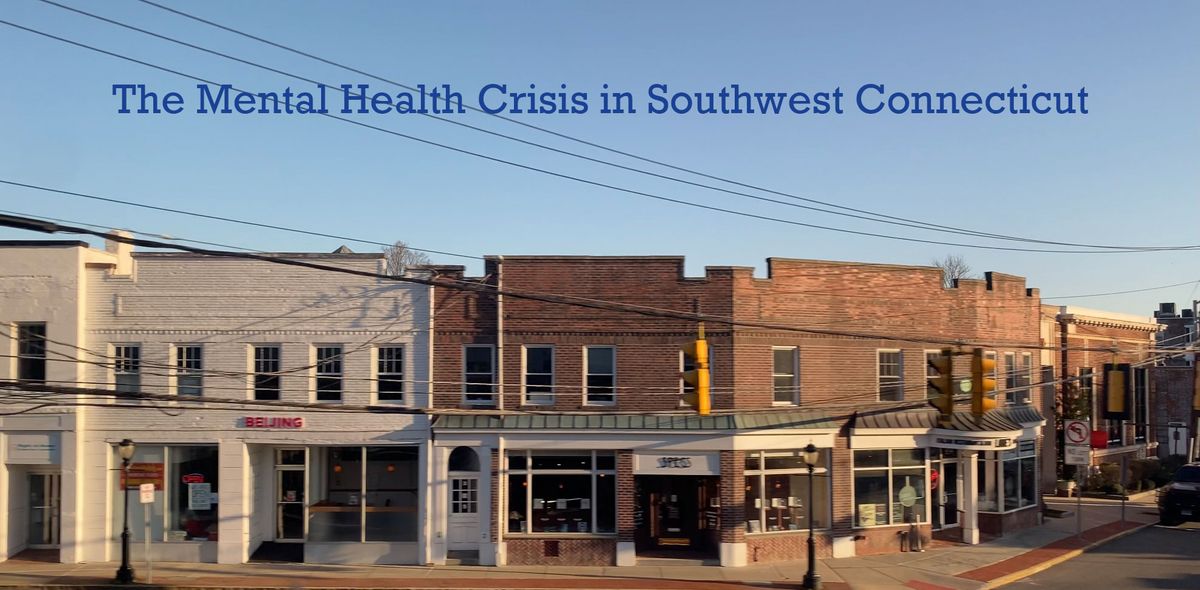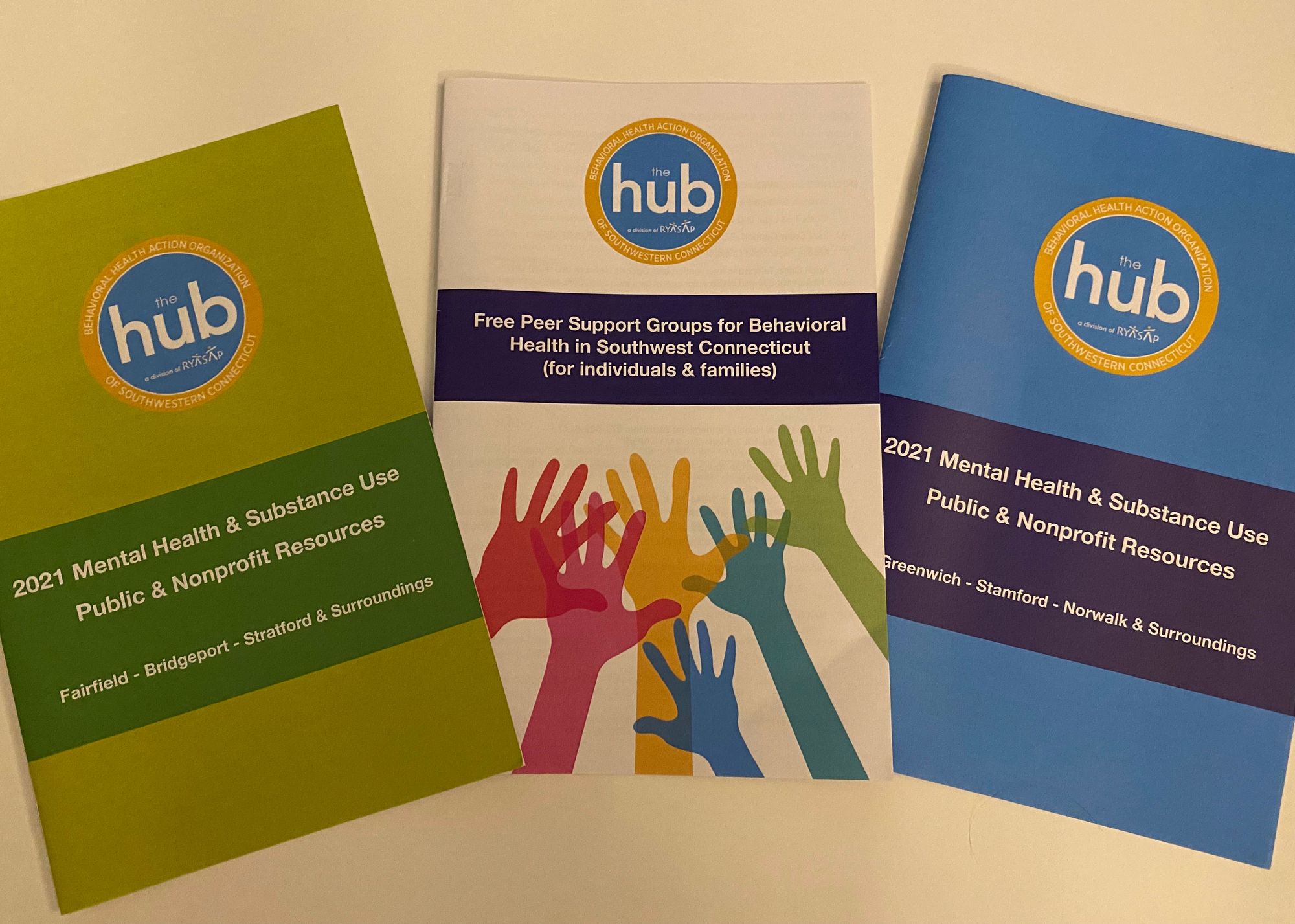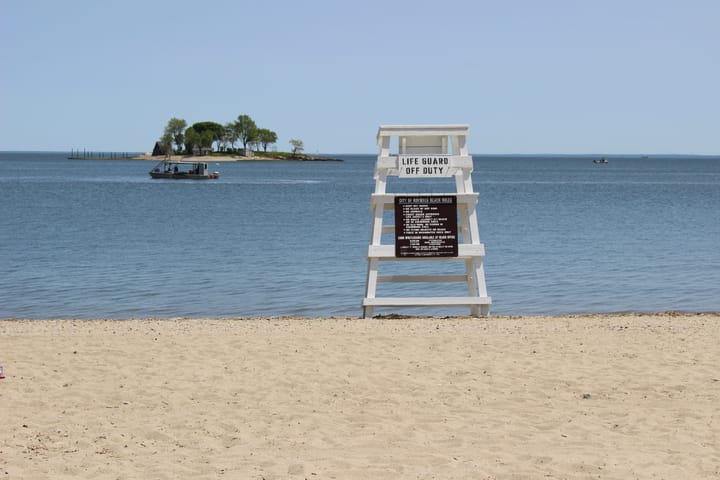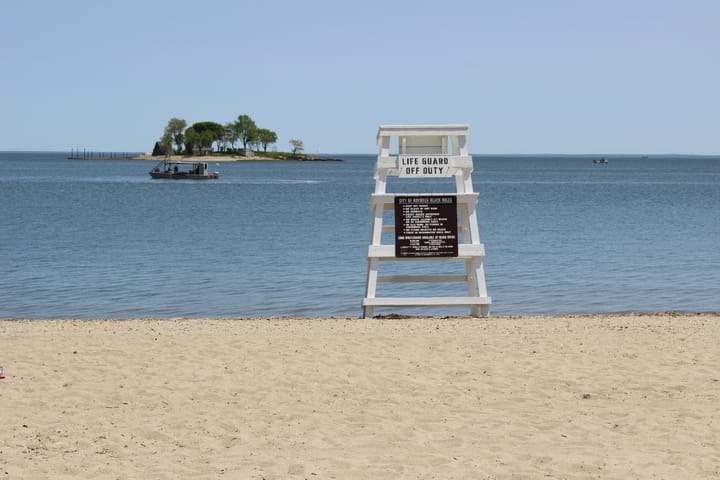Working to Improve Mental Health Resources in Southwest Connecticut
Providers offer advice and tips on how you can make a difference in your personal life and in your community.

With the COVID-19 pandemic forcing people to stay home and away from others, issues went unnoticed, which providers said might be a reason as to why we’re seeing such a dramatic increase in need.
“Both for children and for adults—what was really going on, at home?” Elizabeth Murdoch, director of behavioral health at Family and Children’s Agency, said.
She gave the example of their IICAPs program, which stands for Intensive In-home Child and Adolescent Psychiatric Services, which was virtual during the height of the pandemic in 2020.
“You get a tremendous amount of information by being in someone's home,” she said. “And it really works so much better working with the family. But if you're doing it on a screen, you're not really seeing what's going on at home.”
Providers said that the lack of in-person experiences really hid some of the challenges that people were facing. That’s why, as communities move forward, providers are offering a few ways for people to get involved and support mental health in their community.
Talking to Your Loved Ones
The best thing family members, friends, teachers, and community members can do is talk to those who might be struggling.
Gail Melanson, executive director of the Child Guidance Center of Mid-Fairfield County said she encourages “everyone to think of mental health like any other health—you have to be preventive.”
“Families take their kids for their physicals yearly, but they don't think of mental health as something that they need to check out regularly,” she said. “And I think it is something that you have to keep an eye on. There's going to be times in everyone's life that they need more support in terms of their mental health.”
If it can be taken care of early, the needs and the outcomes might not be as severe, she said.

Directing Those in Need to Resources
One way community members can help those struggling with mental health issues is to raise awareness of the resources that do exist. Daniella Arias, program coordinator and certified health education specialist at The Hub, said that she often works with families who don’t know where to start in terms of finding services.
“This is the first time that they're experiencing things and realizing mental health is an issue—’my child is struggling, where do I go? Who do I speak to? What do I do? What does my child need?’” she said. “A lot of them are looking to teachers, people in schools, other community members, and sometimes people just don't know.’”
Arias said that’s one of her main jobs at The Hub—to get their resource guides in front of parents, community leaders, and school officials so they can point people in need to the right places.
Resource guides like the ones created by The Hub are a great place to start to find out what types of providers are in the area and who can access them.
- Greenwich, Stamford, Darien, Norwalk, and Westport Resource Guide
- Fairfield and the Greater Bridgeport Area Resource Guide
Providers across Southwest Connecticut share how mental health-related issues are impacting the region, what they're doing to try and provide support to residents, and what more needs to be done.
Donate Money or Time If You Can
For providers who offer no or low cost mental health services, particularly nonprofits, state grants and insurance reimbursement only cover so much of their expenses, so they often rely on donations and fundraising to cover the rest.
“A percentage of our budget needs to be raised through private donations and the philanthropic community,” said Marissa Mangone, director of business development for the Child Guidance Center of Mid-Fairfield County. “We’re grateful for any and all contributions to support our organization and offset the service delivery requests that are not covered.”
For example, the Child Guidance Center of Southern CT offers their families case managers to help them address other needs, such as finding a food bank or getting their child a physical, in addition to their clinic services. The work of the case managers can’t be reimbursed through insurance, Georgette Harrison, LPC, NCC, and director of clinical and community partnerships for the Child Guidance Center of Southern CT said, so they are paid for by donations.
“It's families with lots of needs, right?” she said. “We've been really lucky in that we have case managers that work with families to help them secure additional resources. But that's a completely non reimbursable position. We're paying entire salaries, and we do it because that's what the family needs.”
Magone said that they’re also always looking for community volunteers to come out and support backpack drives throughout the year and special holiday drives for those in need.
Advocating Local, State, and Federal Officials For More Support
Melanson said that people can also continue to advocate with their legislators for more funding to nonprofits that provide services for free and/or on a sliding scale to try and help those most in need.
“We’re serving clients that don't have the ability to pay, so we've had grants with, for example, the Department of Children and Families—that funding has been flat for 15 years,” she said. “We can't continue to pay our staff the same as what we paid them 15 years ago, so anything additional we do comes out of our pocket.”
Providing more funding would also allow nonprofits and providers who serve those with no insurance or can’t afford their deductibles to pay higher salaries and keep clinicians.
Harrison emphasized that just because there might be an overall high number of providers in the area, that doesn’t mean the need is being met because many are in private practice and not serving those who can’t afford to pay out of pocket.
“It might look like there's a ton of clinicians around, but the average family can't afford it, because they're having to pay out of pocket,” she said. “If you were to just count the sheer number of clinicians or mental health providers that are in the community, it might look high, but it doesn't necessarily mean that they're accessible. So I think being able to offer salaries, to motivate people to stay in community mental health settings would make a big difference.”
Dennis Torres, chief health officer at Family Centers, said that he has been advocating—and encouraging community members to join him—in asking the state to invest more in school based health centers.
“The school based health centers are meant to address the kids where they are because (sometimes) the parents aren't able to get the kids to their appointments outside of school,” he said. “The state needs to invest more money in school based health centers, (particularly) for adolescent mental health.”
Melanson said that whole communities can be impacted if mental health needs are not met.
“A student recently died by suicide in Darien and I know the community is really impacted by that,” she said. “When something like that happens in a community it impacts the whole community, so advocate for support services, get involved if you can.”
One way to do that is to create suicide prevention and postvention teams, Harrison said. She called for each town in the region to create groups that provide community support around suicide.
“Let's really train the community around suicide prevention through mental health first aid trainings,” she said. “And let's have a suicide postvention plan, so if there is a suicide in the community, this team gets deployed to really help support those around them. Some towns have really rallied around getting those plans put in place, and other towns have not. And I think it would be really helpful.”



